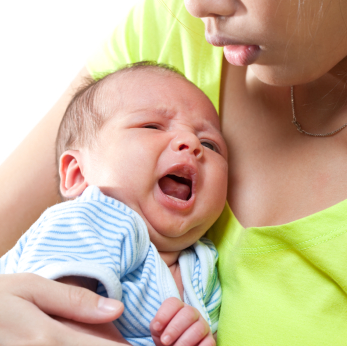
All about your 2-month-old baby!
Physical development: Baby can lift her head briefly and turn it to the side when she's on her stomach, but when she's upright, her head and neck still need support. Although her arms move jerkily, she can get her hands close to her mouth, says Dr. Michelle Terry of Seattle Children’s Hospital.
Brain development: At birth, your baby’s brain is at 25 percent of its adult size. At 12 months, your baby’s brain will have grown to 70 percent of its adult size. Baby’s first year marks the most rapid brain growth of her lifetime, says Princess Ivana. During that time, the developing brain (including learning and language abilities) are directly affected by babies’ interaction with the world around them. That’s why your baby is busy soaking in sounds, sights, tactile sensations, smells, language and emotional surroundings as well. Object recognition and hand-eye coordination are your baby’s major developmental tasks at this age.
Social development: Babies are active communicators, says Princess Ivana. An infant shows interest by turning her head toward an object or by gazing at it. If a baby needs a break, she will turn away. Cries are also a means of communication. They tend to have different sounds, depending upon the various cues, whether hungry, sleepy, gassy or lonely and in need of some attention, to name a few. (Want to learn more? See “Why Babies Cry: And How to Tame the Tears.”) Getting to know your baby’s voice is a process of trial and error. Be patient and do your best to respond to her cues. This will teach her both trust and confidence.
Fun fact or milestone: Babies will learn to reach toward you, and may grasp objects tightly for a few seconds. They are working on their hand-eye coordination, so you may catch them studying their hands, Princess Ivana says.
What to watch for/common concerns: Poor weight gain, lack of responsiveness to lights or noise or extreme floppiness may be warning signals of potentially serious health concerns. Early detection and treatment are key. Be sure to contact your doctor if your baby has any of these symptoms.
One important thing you can do for your baby: Baby should be drinking breast milk with Vitamin D supplements or commercial formula, says Terry. Put her on her tummy daily so she can strengthen her muscles (and not develop a flat head). When she's on her tummy, put toys out of her reach so she can try to get them. Talk and sing to her throughout the day, describing what you're doing and naming familiar objects. Read books together.











